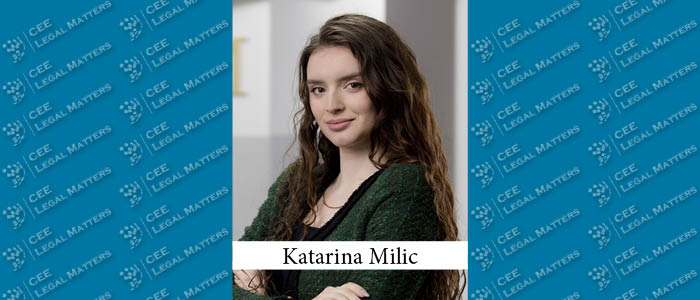The rise of social media has transformed marketing strategies across the globe, and Serbia is no exception. Influencers - individuals with significant social media followings - play a pivotal role in promoting products and services. The influencer marketing industry has experienced remarkable growth over the past few years. As of 2024, it is projected to reach a market size of $24 billion, up from $21.1 billion in 2023. However, with this growing industry comes the necessity for regulation to ensure transparency, consumer protection, and ethical practices.
A rising trend in the EU shows an increasing demand for regulating influencer marketing. Although the EU lacks specific laws in this sense, except for national-level laws such as the French Influencer Act[1], it aims to influence the influencers using existing legislation, helping them navigate the complicated network of regulations with the Influencer Legal Hub. Similar to the EU, Serbia does not yet have influencer-specific regulations, but the existing legal framework implicitly covers influencer marketing activities. Namely, influencer marketing is governed primarily by general advertising and consumer protection laws. The key pieces of legislation include the Law on Consumer Protection[2] and the Law on Advertising[3]. These laws set the standards for advertising practices, including those conducted via social media.
Law on Consumer Protection focuses on safeguarding consumers from deceptive practices. It mandates transparency and honesty in all marketing communications. Influencers must ensure that their endorsements are genuine and not misleading, thereby protecting consumers from false claims. This law introduces the term “trader” as a legal entity, an entrepreneur or a natural person who acts on the market as part of his business activity or for other commercial purposes. For instance, traders are influencers who sell their own merchandise or provide services such as training, master classes, etc. Except for avoiding deceptive practices, traders are responsible for conformity of goods and services provided. Furthermore, considering the fact that influencers can generate high income, their economic activities may be regarded as taxable by the Tax Administration.
On the other hand, influencers that deal specifically with marketing of brands that are not their own are susceptible to the same obligations as traders pursuant to the Law on Consumer Protection, having in mind they are acting for a trader.
Law on Advertising stipulates that all advertising must be truthful and not misleading. While influencers cannot be regarded as advertisers according to this law, they can be considered as transmitters of advertising messages because of their editorial control of social networks. Influencers, therefore, are required to clearly disclose any material connections they have with brands they promote. This includes sponsorships, gifts, and other forms of compensation. This can be done through hashtags such as #sponsored, #ad, or #gifted, ensuring that such disclosures are clear and noticeable. The aim is to inform followers that the content is a paid promotion.
Failure to comply with the abovementioned laws can result in misdemeanour liability for both the influencer and the brand, whereas sanctions may be more severe in case of additional obligations of traders. However, even though the letter of the law is advanced and harmonized in Serbia as with other modern jurisdictions, it is not as easy for the authorities to conduct supervision and sanction irregularities. Even when laws and sanctions are in place, enforcing them can be difficult due to the sheer volume of content and influencers online. Lack of resources, both human and technological, can hinder enforcement efforts. Moreover, identifying influencers and determining their legal responsibilities can be challenging, especially when dealing with pseudonymous accounts or influencers operating across multiple platforms.
Addressing these challenges requires collaboration between policymakers, regulatory bodies, social media platforms, influencers, and other interested parties. Furthermore, drafting clear and comprehensive agreements between brands and influencers is essential. These agreements should outline the scope of the influencer’s obligations, including compliance with disclosure requirements and adherence to ethical standards. By understanding and adhering to the current regulatory framework, influencers and brands can avoid legal issues and build trust with their audience.
However, nothing is as effective as when an influencer receives a message from Instagram stating that in case of non-adherence to Instagram terms or policies, their accounts will be suspended.
[1] https://www.legifrance.gouv.fr/jorf/id/JORFTEXT000047663185
[2] Zakon o zaštiti potrošača ("Sl. glasnik RS", br. 88/2021)
[3] Zakon o oglašavanju ("Sl. glasnik RS", br. 6/2016 i 52/2019 - dr. zakon)
By Katarina Milic, Senior Associate, JPM & Partners


